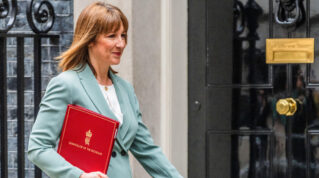Hardship funding to help struggling schools deal with rising pay costs represents as little as a tenth of total school deficits in some areas, new analysis shows.
In one instance, the allocation for a whole county is less than the deficit of just one of its special schools.
The Department for Education confirmed last week that half of a £40 million fund to help the worst-hit schools afford this year’s teacher pay rise would go to 35 councils with the biggest school deficits.
But maintained schools had a combined deficit of £237 million in 2020-21, the latest year for which data is available. The government hardship funding of £20 million for LA schools represents just 8.4 per cent of that total.
The £406,000 handed to Wiltshire represents just 18 per cent of the £2.2 million deficit shared between 12 of its schools.
“Whilst this funding is welcomed, it will have limited impact on the overall position for all 12 schools with deficit balances,” said Laura Mayes, its Cabinet member for education and skills.
She said “all Wiltshire schools” faced increased cost pressures and “the increase has fallen below both inflationary and cost-of-living increases”.
North Tyneside is due to receive almost £1.9 millions. But 14 of its schools are in deficit to the tune of £14.8 million, meaning it is receiving just 12.6 per cent of what it needs to plug the gaps.
Steven Philips, the area’s Cabinet member for education, said the allocation to North Tyneside reflected the challenging position several schools were facing financially.
Majority of local authorities get no cash at all
The Department for Education said the cash had been “targeted” at local authorities with aggregated school-level deficits that totalled more than 1 per cent of their schools’ income – meaning the majority of authorities get no cash at all.
The government wants council chiefs to use the funding to “best support their schools in the individual circumstances in which they find themselves”. They will be given “significant flexibility over how this funding can be used”.
But the guidance added: “This does not mean that every school with a deficit within that local authority should be given additional funding.
“We expect funding to be allocated on a case-by-case basis, taking into account the severity of the school’s position and prioritising those in greatest need.”
Worcestershire will get £1.6 million, but 25 of its schools have deficits totalling £11.6 million, meaning just 13.5 per cent is covered.
Tracey Onslow, its Cabinet member for education, said Worcestershire schools were in the bottom quartile of funding per pupil in the country. “It is pleasing that this has been recognised, albeit on a one-off basis.”
In North Yorkshire, 21 schools have deficits totalling £4.8 million. But the council will only receive about £970,000, a fifth of what is needed.
Annabel Wilkinson, the council’s executive member for education, also welcomed the funding, but warned the council remained “particularly concerned over funding for small secondary schools that serve sparsely populated and rural areas”.
The cost of pay increases are a particular concern for special schools, which need more specialist teachers and employ higher numbers of support staff – whose pay rises average 8 per cent this year.
‘No plans’ for similar hardship funding next year
In 2020-21, maintained special schools nationally had a combined deficit of £27.5 million, more than the £20 million hardship fund for all councils combined.
Oxfordshire has been promised £330,000 to help struggling schools across the whole county. Simon Knight, head of the Frank Wise special school, said he had an in-year deficit of £370,000, driven by a £250,000 increase in staffing costs.
“It is essential that the government gets to grips with the financial crisis engulfing the specialist sector before more schools find themselves in an impossible position of being legally required to provide an education that they cannot afford.”
In its guidance, the DfE stressed the allocations were “not solely intended to cover schools which are in deficit as a result of the 2023 teachers’ pay award”.
The government “has no plans” to hand out similar funding in the next financial year, although councils can roll forward funding from the £20 million that is not used this year.
The other £20 million will be available to academies who can apply to the Education and Skills Funding Agency if they need support.
















Your thoughts